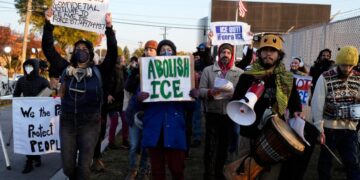By repudiating Roe v. Wade, the 1973 decision that said women have a constitutional right to terminate a pregnancy, the Supreme Court has freed states to set their own abortion policies. But the impact of the new leeway allowed by the Court’s decision in Dobbs v. Jackson Women’s Health Organization will vary widely across the country. While severe restrictions will be enacted or take effect in many states, abortion will remain legal in most.
Thirteen states have “trigger” bans that are designed to take effect after Roe is overturned. Some of those states, plus others, have enacted laws that were enjoined based on Roe and Planned Parenthood v. Casey, the 1992 decision that reaffirmed Roe‘s “central holding.” Several states do not currently have bans but are expected to enact them in response to Dobbs, which overturned both of those precedents.
More HERE








